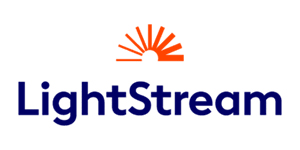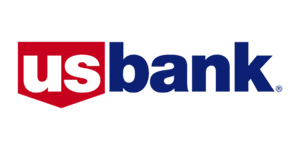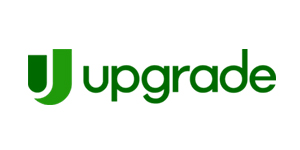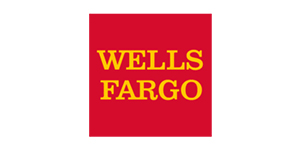Compare the Best Personal Loans for Good Credit
Best Personal Loans for Good Credit
We’ve analyzed the top lenders in the industry and compiled a list of the best personal loans for good credit. Good credit is generally a score of 670 or higher, according to FICO, and means you’re perceived to be a low-risk borrower.
From LightStream’s competitive rates to Wells Fargo’s in-person service, we’ve got a personal loan recommendation for every need.
- LightStream: Our top pick
- SoFi: Best customer service
- PenFed: Best for small loans
- Discover: Best for low rates
- Upstart: Best for low-income borrowers
- U.S. Bank: Best for bank switchers
- Upgrade: Best discounts
- Wells Fargo: Best for in-person service
*APR accurate as of April 26, 2024
When Might You Consider a Personal Loan
If you have good credit, you may qualify for great personal loan rates, making this type of loan a better option than credit cards or home equity loans for major purchases. Personal loans often come with fixed rates and predictable payments, which make it easier to budget for than a variable-rate credit card or home equity line of credit (HELOC).
Here are just a few of the scenarios where a personal loan could be your best option:
Debt Consolidation
If you’re struggling with high-interest credit cards and/or other debt, consolidating it with a personal loan could be a smart move. By combining multiple debts into one loan with a lower interest rate, you could save money in addition to reducing the number of monthly payments you’ll have to make.
Major Expenses
If you have a large expense coming up, like a wedding or kitchen remodel, a personal loan could help you finance it. You’ll have a lump sum you can use to cover the costs upfront while spreading the payments over a set period of time.
Emergencies
Not all major expenses are planned. When a medical or other type of emergency arises for yourself, your family or your pets, you may not be prepared. A personal loan can help fill in the financial gaps of these situations.
Taking out a personal loan is a big decision, so don’t take it lightly. Only borrow what you can afford to repay, and consider speaking with a financial adviser or credit counselor if you’re not sure what to do. They can help you understand the pros and cons of taking on debt and determine if a personal loan is right for you.
Key Considerations When Choosing a Lender
The three main things to consider when choosing a personal loan lender are interest rates, fees and terms. The interest rate is the cost of borrowing money and can vary widely between lenders. Fees can include origination fees, prepayment penalties or late payment fees and can add up quickly. Terms refer to how many months or years the loan lasts and when you’ll make payments.
Use this checklist to evaluate personal lenders and choose the right one:
- Compare interest rates from multiple lenders: Get loan offers from at least three lenders. The annual percentage rate (APR) includes both the interest rate and fees, so use it to compare lenders apples to apples.
- Look for any fees associated with the loan: This includes prepayment penalties, application fees or origination fees. Ideally, you shouldn’t be charged any of these fees.
- Consider the length of the loan and the repayment schedule: How many years will it take you to pay off the loan? Most loans last for two to seven years. Choosing a longer loan term may lower your monthly payments, but you’ll end up paying more for the loan in total due to interest.
- Evaluate the repayment flexibility offered by the lender: The best lenders will let you adjust your due date, make extra payments or even pause payments if you have a financial hardship.
- Research the customer support offered by the lender: Choose a lender that has convenient hours and easy-to-reach customer support.
The Bottom Line
Finding the right personal loan with good credit is a financial superpower. It means you can access some of the best deals on the market today. If you find yourself in this fortunate position, take a moment to explore personal loan options from reputable lenders.
But remember, even with good credit, reading the terms and making informed financial choices is crucial. Make sure you choose a loan you can afford to repay and only borrow what you need.
You can also get a personal loan for bad credit if your credit score isn’t good enough.
Frequently Asked Questions About Personal Loans for Good Credit
FICO defines a good credit score as anything between 670 to 739. With a score in this range, you’re more likely to be approved for personal loans with lower interest rates.
Payday loans and cash advance loans are generally easy to get, but they come with high interest rates and fees that can trap you in a cycle of debt. As a result, they’re generally not a good idea for most people. It’s better to increase your credit score first so you have a higher chance of getting approved for a personal loan with fair rates.
Online lenders such as LightStream and SoFi offer instant or same-day funding for personal loans. You can speed up the process by applying during business hours and signing your loan agreement right when they send it to you.
You’re more likely to get a personal loan if you have a good credit score, a stable source of income and a debt-to-income (DTI) ratio below 40%. If you’re missing one of these key pieces, having a co-signer with strong credit can increase your chances of approval.
Methodology: Our System for Ranking the Best Personal Loans for Good Credit
Our team put together a comprehensive 100-point rating system to evaluate personal loan companies based on factors that mean the most to you, the potential borrower. We then gathered scores of data points from across the industry, analyzing disclosures, licensing documents, sample loan agreements, marketing materials and websites for more than two dozen of the most prominent personal loan companies in the United States.
Our rating system takes into account four broad categories. Here’s a brief breakdown of each one.
- Affordability (35%): We gauge how expensive each company’s loans are to pay back, taking into account both interest rates and fees. The highest-scoring lenders will have low minimum and maximum annual percentage rates (APRs) and low or no origination fees.
- Loan features (35%): This category measures the breadth of loan terms available to prospective customers. The most points go to lenders with a wide range of loan lengths, small minimum loans, large maximum loans, and fast funding.
- Customer experience (20%): We review each company’s application, prequalification and customer service policies and procedures to create this category score. The best companies will have simple online applications and multiple ways for customers to get their problems solved.
- Company reputation (10%): Our team analyzes each company’s Better Business Bureau file, customer reviews and any outstanding regulatory actions. The most points will go to companies with an A+ rating with the BBB, a track record of addressing customer complaints and no active regulatory orders.
This rating system is intended to give readers a comprehensive overview of each personal loan company. However, our top-rated lenders may not be the best fit for all borrowers. To learn more, you can read our full personal loans methodology.
Editor’s Note: Before making significant financial decisions, consider reviewing your options with someone you trust, such as a financial adviser, credit counselor or financial professional, since every person’s situation and needs are different.
If you have questions about this page, please reach out to our editors at editors@marketwatchguides.com.












